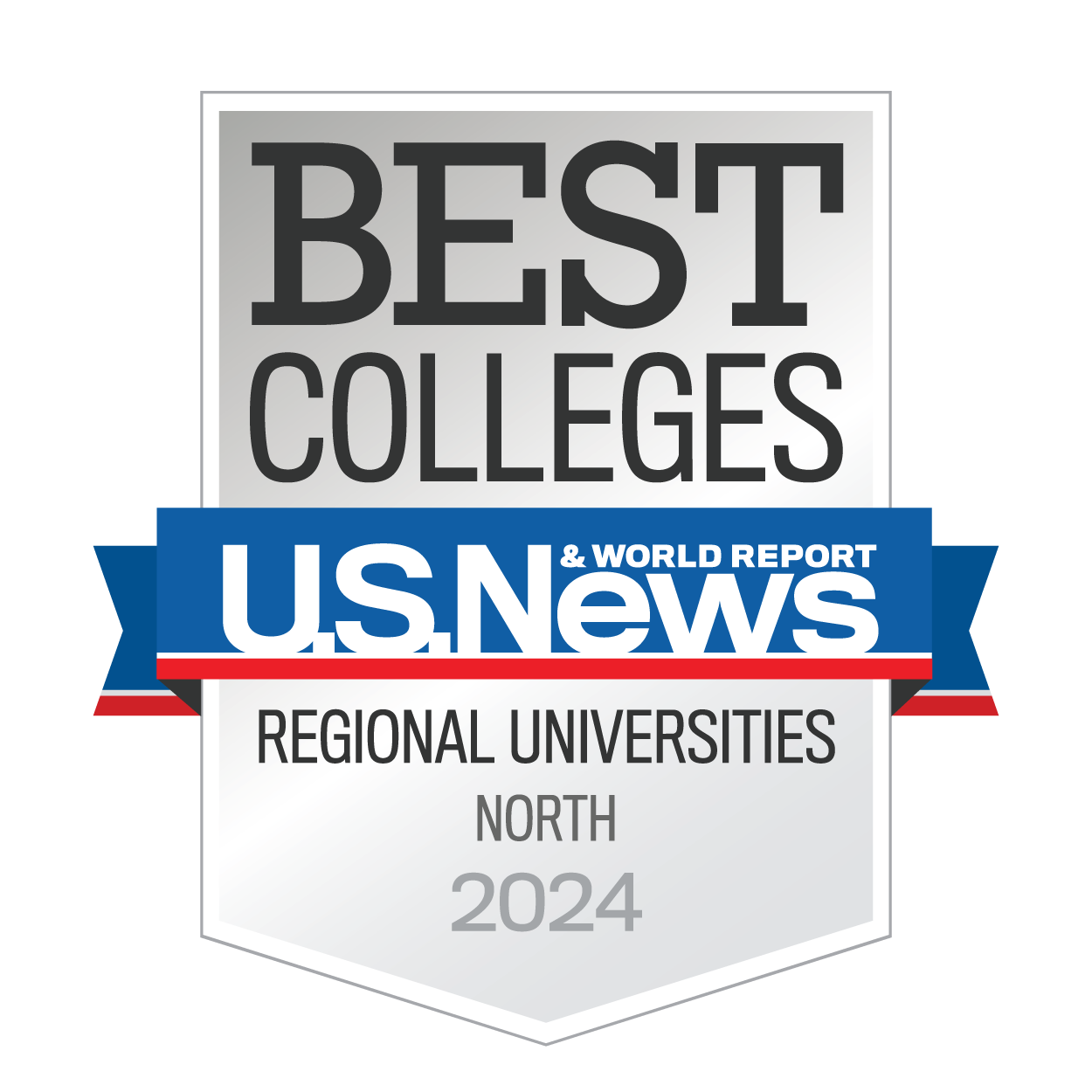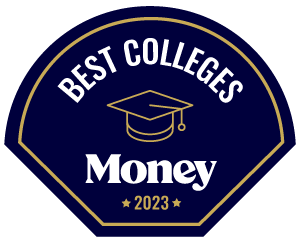M.Ed. in Elementary Education
Set yourself up for a rewarding career in elementary education with a Master of Education in Elementary Education
Online Master of Education in Elementary Education
Our 36-credit M.Ed. in Elementary Education prepares you for your Initial License to work in grades 1-6. Through coursework and field-based experiences, you develop an understanding of subject matter knowledge, curriculum design, instructional strategies, observation and assessment, communication, and collaboration with families and the community.
This program is approved by the Department of Elementary and Secondary Education and is aligned with the Massachusetts Professional Standards for Teachers and Subject Matter Knowledge requirements.
Initial Licensure students who decide not to pursue their license will still be able to complete their degree as a personalized non-licensure master’s degree.
Learn more about Merrimack’s M.Ed. in Elementary Education.
Tuition-Free Teacher Education Fellowship
Graduate in One Year, Tuition-Free
As a K-12 teacher fellow, you’ll work in a partner school district for a full academic year, gaining unparalleled and invaluable field experience. You’ll engage in a range of classroom-based activities, including small group instruction, co-teaching, and ultimately, independent classroom instruction.
Fellows graduate in one year, tuition-free, and earn a Master of Education in Teacher Education and licensure in their area of specialization.
Available now for both on-campus and online students while spots are still available.
Learn MoreKey features of our Elementary Education M.Ed. program include:
Nine (9) courses
You can complete your Elementary Education program through convenient self-paced and online courses. You achieve 36 credits total – with every course lasting eight weeks in length and worth four credits each.
Immersion Events
You and other students in your program have the option of gathering together during your program for immersion events (e.g., seminars, guest speakers, and networking events) to connect in person with your peers, faculty and leading educators in the field.
Field-Based Experiences
You learn in the classroom from the start of your program. There are three pre-practicums and a full practicum of of 450 hours, which is the equivalent of 15 weeks. Field-based experiences are arranged at conveniently located schools in Massachusetts, close to home. Your teacher education program specialist provides personalized support throughout your field-based experiences. Successful completion of the 15-week practicum contributes four credits toward the degree for a grand total of 36 credits.
Massachusetts Tests for Educator Licensure (MTEL) Exam Preparation Support
You will gain support and preparation assistance for the MTEL exams required for your Initial License in Massachusetts. MTEL preparation is built right into your program. The Elementary Education Concentration requires successful completion of the following MTEL exams:
- Communications and Literacy (01): Reading subtest
- Communications and Literacy (01): Writing subtest
- General Curriculum (78): Language Arts and History/Social Science
- General Curriculum (78): Mathematics, Science, and Technology/Engineering
- Foundations of Reading (190)
Initial Licensure students who decide not to pursue their license will still be able to complete their degree as a personalized non-licensure master’s degree.
What Skills Will You Develop With M.Ed. in Elementary Education?
To earn your M.Ed. in Elementary Education, you will complete nine courses, including your practicum, for a total of 36 credit hours. Classes are eight weeks long and self-paced for your convenience. Field-based experiences include three pre-practicums and one full practicum.*
*The practicum field experience is a full semester of 15 weeks, comprised of 450 hours.
The course will present the basic components of lesson planning using Understanding by Design (UbD). Students will learn techniques around differentiating instruction, including tiered instruction, scaffolds to accommodate differences in learning styles, needs, interests and levels of readiness of students. Students will examine specific systematic behaviors teachers use to create orderly, cooperative and motivating learning environments that promote student achievement.
Co-requisites (0 credits):
- ED 6500G – Pre-Practicum Field-Based Experience I
- ED 6501G – Teacher Education Program Orientation
The course provides an overview of the emergence of language and literacy as well as the assessment and identification of disabilities and their impact on academic and personal growth. Significant theories related to cognitive, social, emotional, and physical development in childhood will be reviewed.
This course provides an introduction to the significant theories, practices, and programs for developing literacy skills in children with learning challenges. Beginning with an introduction to literacy development, the focus will be on planning assessment, designing instruction, and selecting research-based interventions for children with disabilities, students from diverse linguistic and cultural backgrounds, and students with limited educational experiences. Topics will include linking assessment to instruction, research-based methods and strategies, accommodations, modifications, and the use of assistive technology devices to support literacy success.
This course will focus on numbers and operations, and on functions and algebraic concepts as described in the Massachusetts Mathematics Curriculum Frameworks for grades 1-8. As many children have mathematical capabilities beyond their grade level, course participants will be stretched to use and apply the mathematical concepts learned to multiple situations and to higher level problems. Emphasis will be placed on the attainment, articulation and application of the math concepts associated with each strand of learning. Teaching and assessment methods that are challenging yet attainable, and developmentally appropriate will be examined.
This course is designed to enable prospective elementary school teachers to teach mathematics efficiently and effectively to diverse student populations. Prospective teachers will learn how to develop and coordinate learning objectives, assessment techniques, and instructional methodologies according to the psychological principles of how children learn mathematics. Attention will be given to teaching recommendations from the National Council of Teachers of Mathematics, the Common Core State Standards as well as the professional standards for teaching determined by the Department of Elementary and Secondary Education of Massachusetts.
The first section of this course will focus on science education. Attention will be given to cognitive development and scientific reasoning skills, the scientific method of inquiry, and elements important to teaching science and assessing student understanding. The second section will focus on health education, addressing the “Coordinated School Health Program,” law and policy around health and safety, signs and symptoms of maltreatment, and the assessment and interpretation of content for presentation to different cognitive and developmental levels. In both science and health, there will be a focus on application through investigations, and lesson and unit plan development based on the strands and standards of the Science and Technology, and Comprehensive Health Frameworks for the elementary grades. The third section will focus on the planning and development of the elementary physical education program.
The course will address three major aspects of social studies. Initially, there will be a focus on the development of geography skills and global awareness through the study of five world regions and the convergence of environmental, cultural, political and economic systems of globalization. Secondly, the course will focus on developing history skills such as critical, creative and analytical thinking, problem solving, valuing, and decision making. Lastly, the course will apply cooperative learning, vocabulary and concept formation, and online resources to the study of the Social Studies. Throughout the course, there will be a focus on the organization of curriculum, instructional methods and student assessment processes.
The purpose of this course is to prepare teachers with the knowledge and skills to effectively design content instruction in order to support English Language Learners (ELLs) in accessing curriculum and achieving academic success as they prepare for their futures in the 21st century global economy. Throughout the course, effective research-based strategies will be modeled. Teachers will have opportunities to practice strategies, to analyze their practice, to provide and receive feedback, and to reflect on their own experiences. The course addresses three over-arching goals for teaching ELLs:
- To help teachers effectively carry out their responsibility for the teaching and learning of ELLs, as well as to understand the social and cultural issues that contribute to and impact schooling for ELLs.
- To expand teachers’ knowledge of how language functions within academic content teaching and learning, and how children and adolescents acquire a second language.
- Provide teachers practical research-based protocols, methods, and strategies to integrate subject area content, language, and literacy development using the Massachusetts English Language Development (ELD) standards and the World Class Instructional Design and Assessment (WIDA) standards to support ELL students’ success in meeting standards of the 2011 Massachusetts Curriculum Frameworks as well as the Common Core content standards.
This course is delivered in a hybrid model with on-ground elements delivered in person over a series of weekends. Alternate models for the completion of your SEI endorsement are available. Please contact the Program Director for more information.
This is the practicum required for licensure.
Tuition and Financial Aid
M.Ed. in Elementary Education
$579
per credit*
36
credits
$20,844
tuition
*Tuition based on 2023-2024 academic year.
Tuition and fees are subject to change annually.
Additional program fees may apply.
Financial Aid
As a graduate student pursuing a master of education degree, you may qualify for federal support in the form of loans. We strongly encourage all eligible graduate students to apply for federal financial aid, even if they don’t demonstrate an exceptional financial need.
Complete the Free Application for Federal Student Aid (FAFSA).
Merrimack College’s FAFSA school code is 002120.
Partnership Discounts
Merrimack accepts employer financial/tuition assistance. We also offer partnership discounts. Contact us or ask your employer whether your organization is an official partner with Merrimack’s online programs.
It’s Easy to Apply Online
A complete application includes:
- Online application (no fee).
- Official college transcripts from all institutions attended.
- Resume.
- Interview or Personal statement.
- Contact information for one reference or one letter of recommendation.
GRE and GMAT scores are not required.
Key Dates and Deadlines
This program enrolls six times a year. Each term is eight weeks.
Merrimack College
Accolades and Accreditation
At Merrimack College, we’re proud of our long history of providing quality degrees to students entering the job market. Our faculty are more than just teachers. We are committed to helping you grow — academically, personally and spiritually — so that you may graduate as a confident, well-prepared citizen of the world.
U.S. News & World Report | Best Regional Universities North (2024)
- Most Innovative Schools (No. 14)
- Regional Universities North (No. 33)
- Best Undergraduate Teaching (No. 31)
- Best Undergraduate Engineering Programs (No. 86)
(at schools where doctorate not offered) - Best Colleges for Veterans (No. 14)
- Best Value Schools (No. 47)
NECHE-Accredited
- Merrimack College is accredited by the New England Commission of Higher Education (NECHE).



Tell me more about Merrimack’s online programs.